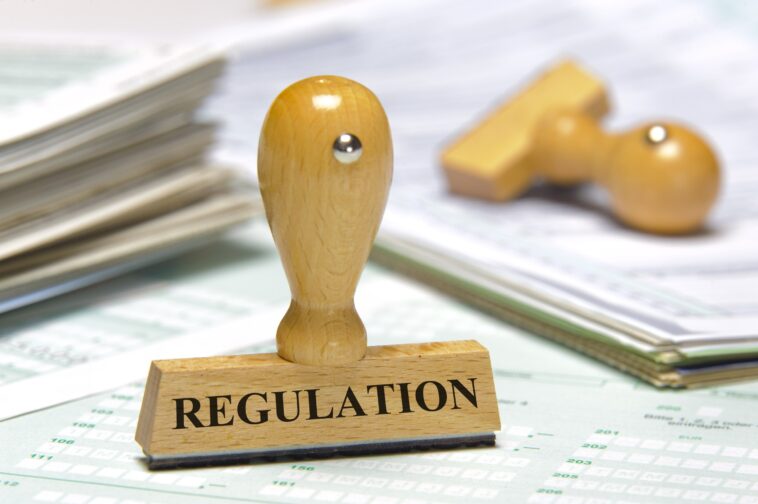The Forex market is one of the biggest financial markets in the globe. In a fast-growing globalized economy, the Forex market’s implication to the standard prospect cannot be underrated.
Forex trading has been the limited domain only for large banks and firms, but modern tendencies have changed this concept. With the arrival of individual investors, regulation of foreign exchange trade becomes essential.
It took a long while with unsuccessful attempts to govern the over the counter (OTC) Forex. Still, the Commodities Futures Trading Commission (CFTC) has finally found a way to supervise the forex market.
Certified brokers’ names and license numbers can be found on any website offering brokers’ information. Therefore, when venturing into the financial market and searching for a forex broker, make sure to read as many reviews as you can to find the one that will serve your needs. You can start by perusing CTL Markets Review as suggested by MyForexNews.
Forex regulation

Forex regulation refers to a policy that has been imposed into place to guarantee safe forex trading. To ensure a safe forex space, there is a need to set legitimate and monetary rules to govern the forex market.
Regulatory oversight ensures no fraud and guides investors to regulated brokers. Regulators are liable for performing periodic audits and reviewing constant monetary and customer-related activities among forex traders.
These regulations protect the trader in that it makes sure that the broker abides in guidelines placed and credible rules. When policies are not followed appropriately, the regulator can punish the broker as agreed.
Since no main body owns and regulates forex trades, regulatory units are set up locally in different world regions. Each body governs under its respective jurisdiction. Each jurisdiction might vary across regions, but fixed standards are followed globally.
Regulatory bodies in the EU, however, can regulate all through the continent. Some major regulatory bodies are Cyprus Securities and Exchange Commission (CySEC), based in Cyprus Europe Australian Securities and Exchange Commission (ASIC) in Australia, among others.
Forex controllers are accountable for registering and certifying forex brokers. Exclusively brokers vetted and enlisted are guaranteed safe to traders. Another obligation of the forex regulators is performing audits and evaluating brokers to confirm they concur with monetary and credible principles.
An unbridled speculation market requires regulations

Trades in the Forex market can be categorized into two types – commercial and speculative. A business transaction is supported by primary economic activity, such as giving money for a commodity or a loan to a commodity abroad. A speculative trade takes place solely to earn from changes in the value of different currencies.
Speculative transactions far surpass retail transactions in the sector of Forex. When intermediaries like banks are involved, financial anomalies, hidden payments and high-risk exposure result in high influence levels.
Online trading has enabled smooth trading, and more firms are starting to open and run more sites. Therefore, they represent a more significant percentage of Forex trading proportions. The percentage of foreign exchange transactions in the 1970s was only about six times the world trade price in goods and services. But today, the daily Forex trading volume amounts to $ 5 trillion.
The observation also establishes that the growth in Forex trading activity is primarily due to “other financial institutions”. It is a vast sector encompassing small banks, institutional investors, corporations, insurance companies, central banks and retail investors. The two factions driving advancement in this sector are High-Frequency Trading (HFT) and retail investor online trading, respectively, accounting for 25% and 8-10% of the 1.5 trillion Forex spot market.
The Significance of retail Forex regulation

Restriction in the Forex market was practically non-existent a decade ago. Still, retail investors’ rapid growth of Forex trading has led to expanded oversight and restriction. Regulatory bodies such as CFTC and the Commodity Futures Trading Commission are in charge.
Under the Commodity Exchange Act, the CFTC has jurisdiction over leveraged Forex trading extended to retail clients in the United States. The Act permits legislated entities to act as counterparties for foreign exchange trades with retail clients. It expects all online currency traders to meet the strict economic criteria implemented by the National Futures Association. (NFA).
For a retail Forex trader, unregulated Forex brokers, unlawful activity or outright corruption is the most significant risk. Dishonest activity includes unfair commissions generated by churning accounts receivable, lobbying salespeople, Ponzi schemes and misrepresentation. With nearly 26,000 people in the United States who lost 460 million dollars to scams between 2007 and 2017, the increasing incidence of Forex fraud led the CFTC to establish a special task force in 2008 to deal with this problem.
Authoritarian regulations initiated in the United States in 2010 to safeguard retail Forex traders have eliminated corruption to a large extent. In Japan, the world’s most active retail foreign exchange market, the Financial Services Authority (FSA) regulates all markets.
The FSA is proactive in legislating retail Forex trading. For instance, it reduced maximum leverage available to retail Forex traders to 25: 1 in 2017, after reducing it to 50: 1 a year earlier. In the UK and mainland, Europe regulation is limited, and there are few limits on leverage.
Irregularities can also be found in regulated and well-established companies. It is crucial to double-check a broker’s credentials and business policies before investing and settling with them. To know if a forex regulator is licensed, check the regulator’s name and license number on the broker’s website or any other available website that offers brokers’ details.
Conclusion

Apart from falling prey to unregulated brokers, small Forex traders might have their share of risk factors which may include high currency volatility, which will increase the risk of increased losses for a small trader. Being a small fire trader might exclude one from accessing information about large corporations with large transactions and capital flows.
High hedging costs caused by increased currency volatility may lead to corporations charging more due to their higher costs—lack of regulation of institutional forex trading significantly contributes to the negative impact on the retail forex investor.





